Exploring Yellowstone National Park, August 18, 2014
After we were back to the car, we decided to drive the northern part of the Grand Loop Road, driving north from Canyon to Mammoth Hot Springs on the east side, then to Norris on the west side and back across the middle of the park on Norris Canyon Road to Canyon.
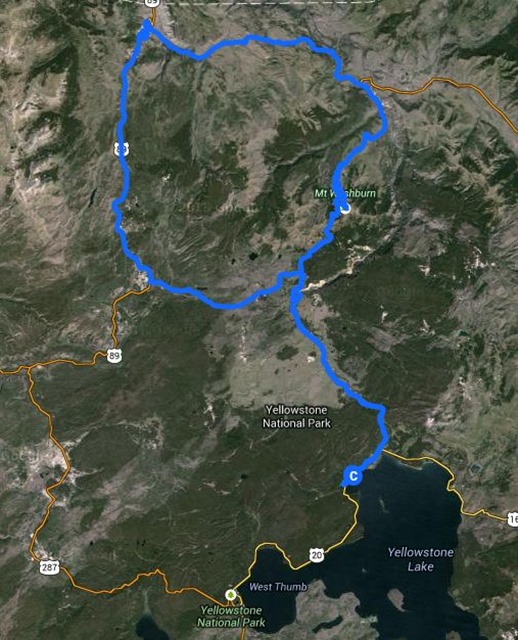
The route goes up over Dunraven Pass, on the southern flank of Mt. Washburn. An unpaved spur, Chittenden Road, goes up on the north side, ending in a parking lot – at an elevation of about 8,800 feet – for a trail that goes to the top of Washburn. We drove to the parking lot for the view, not the trail, as we had already done a strenuous, for us, trail earlier in the day.
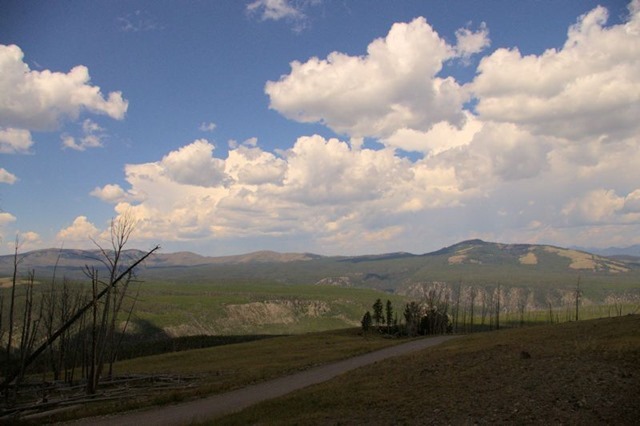
While we were up there, a lone bull buffalo came meandering into view and walked up to the door of the rest room that Karen had just been in a few minutes before.
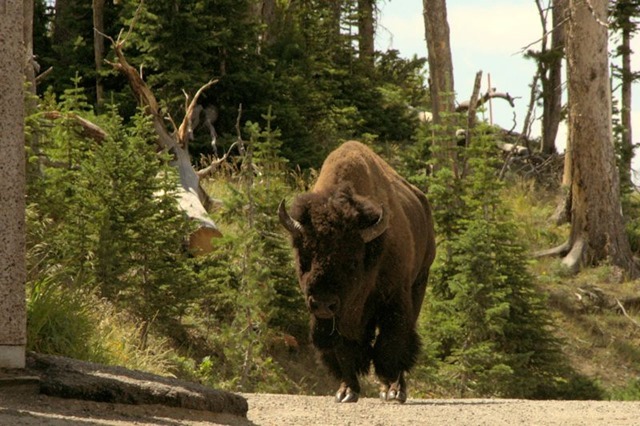
We have no idea how many buffalo we have seen this trip and most certainly not over the many years we have been visiting these western parks. We still always find them fascinating.
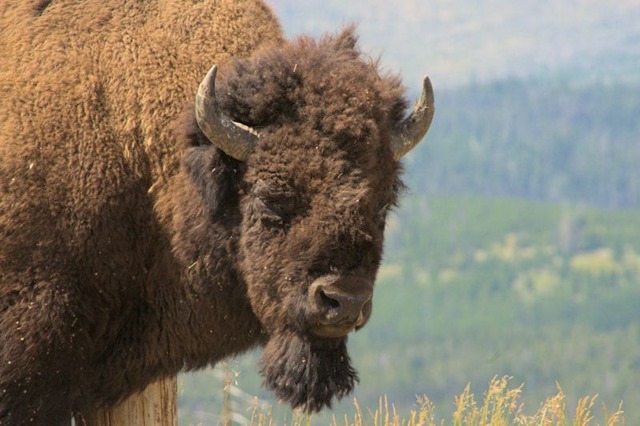
We did take one relatively short trail to a viewing area that overlooks Calcite Springs and the Yellowstone River canyon.
The heat source below Calcite Springs is hot enough to liquefy large quantities of sulfur found here. Occasionally the molten sulfur oozes to the surface where it flows like molasses.
The heat of underground fractures releases deposits of oil from rocks deep below the surface. The oil then slowly and sporadically seeps to the surface.
Contact with air causes the liquid sulfur to turn black. As a result, it is impossible to tell from a distance if the dark areas around Calcite Springs are oil or sulfur.
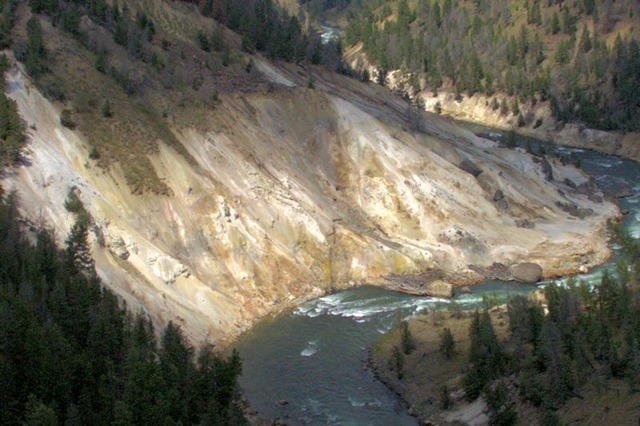
The Calcite Springs hydrothermal area is closed to visitors.
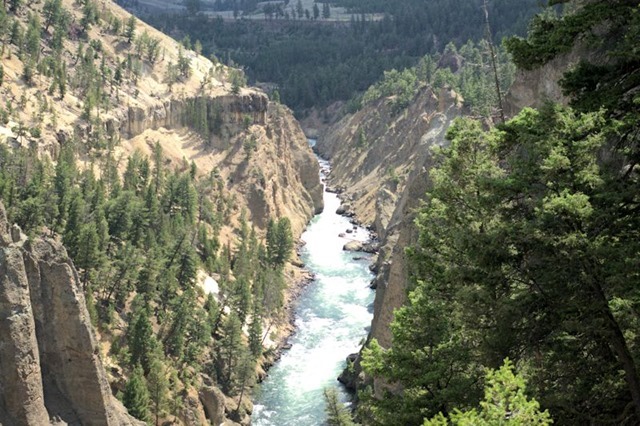
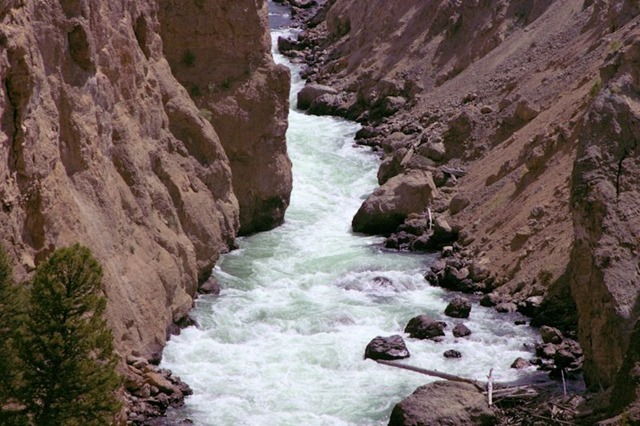
At Mammoth Hot Springs, the sky was dark and threatening.
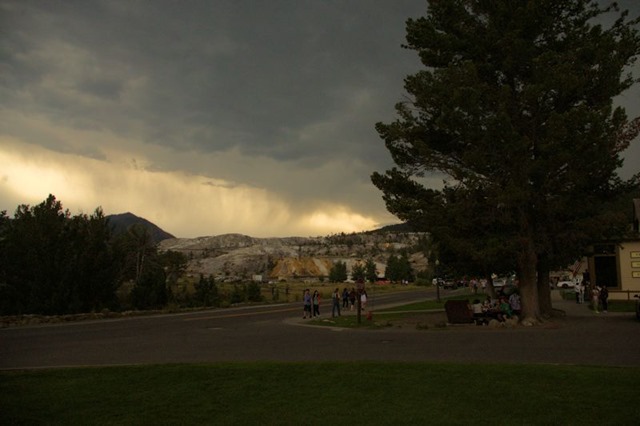
After a rest room break and browsing one of the park stores, we headed over to the Terrace Grill for some huckleberry ice cream as the storm breaks. A lightning bolt strikes and in the distance we see people scurrying off the terrace trails and boardwalks.
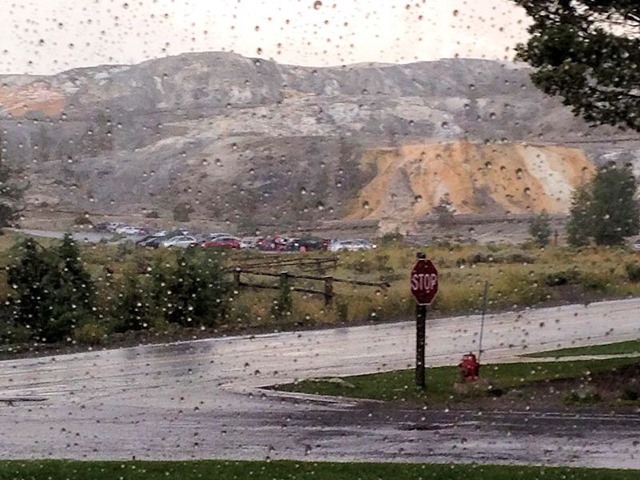
After finishing the ice cream, we decided the rain wouldn’t be ending soon. So we made a dash for the car to start the long drive back to the campground.
Along the way, we spotted a a couple of elk – and Karen got a picture (below). We saw very few elk in Yellowstone this trip. With the reintroduction of wolves, the number of elk has been reduced. As well, the presence of predators has altered elk grazing and migration patterns.

Next – will we see a wolf?

